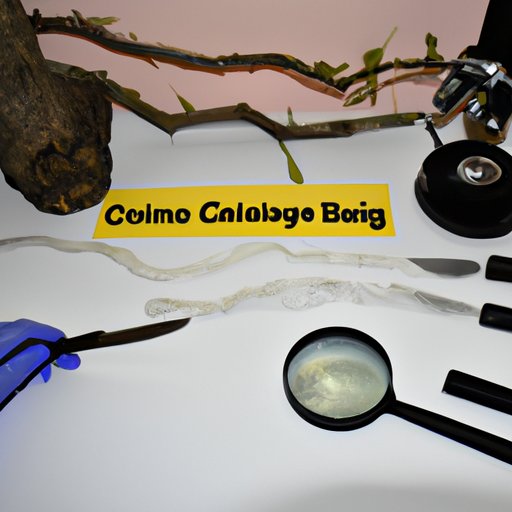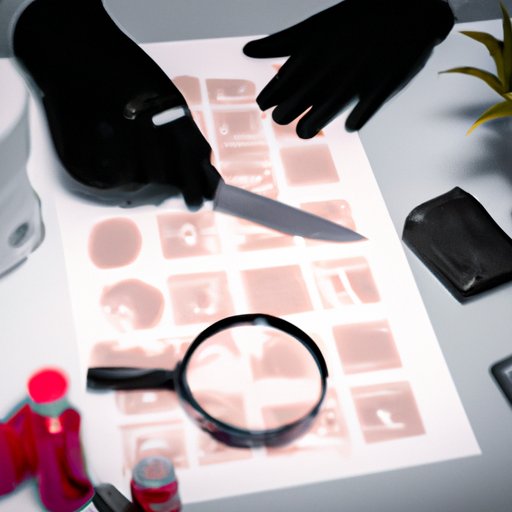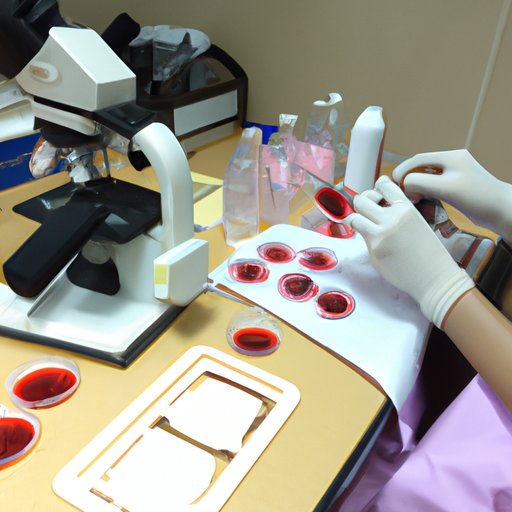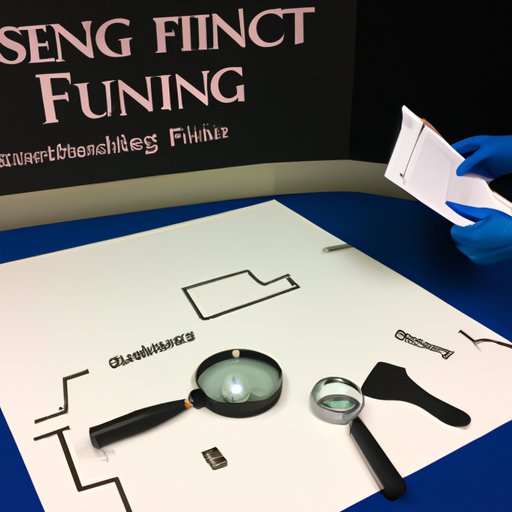Introduction
Forensic science is a broad field that incorporates many different branches of science and technology to investigate criminal activity. Forensic scientists use the latest scientific techniques to analyze physical evidence and draw conclusions about the events leading up to a crime. In this article, we’ll explore what you do in forensic science and how it can help solve crimes.

Exploring the Different Branches of Forensic Science
Forensic science is divided into several different branches, each focusing on a specific area of expertise. These include:
Forensic Biology
Forensic biologists study biological evidence such as blood, hair, and DNA. They use their knowledge of genetics and biochemistry to identify suspects and link them to a crime scene. Forensic biologists may also use DNA profiling to determine if a suspect’s blood matches that found at a crime scene.
Forensic Chemistry
Forensic chemists analyze chemical evidence such as drugs, poisons, and explosives. They use sophisticated laboratory equipment to identify unknown substances and trace chemicals back to their source. This type of analysis can be used to determine the cause of death or link a suspect to a crime scene.
Forensic Anthropology
Forensic anthropologists study skeletal remains to determine the identity of a victim and cause of death. They use their knowledge of human anatomy, osteology, and pathology to reconstruct a person’s identity and provide key evidence in criminal investigations.
Forensic Psychology
Forensic psychologists study psychological evidence such as witness statements and testimony. They use their understanding of human behavior to evaluate the credibility of witnesses and assess the mental state of suspects. Forensic psychologists may also be involved in interrogations and courtroom proceedings.
Digital Forensics
Digital forensics is the branch of forensic science that focuses on the recovery and analysis of digital evidence such as emails, social media posts, and computer files. Digital forensics experts use their knowledge of computer systems and networks to uncover evidence of cybercrimes and other online activities.

The Role of Forensic Science in Solving Crimes
Forensic scientists play a critical role in criminal investigations. They are responsible for collecting and analyzing evidence from crime scenes and providing expert testimony in court. Their findings can help law enforcement officers build a case against a suspect and ultimately secure a conviction.
According to The Guardian, “Forensic science has become an integral part of modern criminal justice systems, providing vital information to police, prosecutors, defense attorneys, judges, and juries.”
A Day in the Life of a Forensic Scientist
A typical day in the life of a forensic scientist involves a variety of tasks and responsibilities. Depending on the type of work they do, these tasks may include collecting and analyzing evidence, writing reports, testifying in court, and consulting with law enforcement officers. Forensic scientists must also stay up-to-date on the latest developments in the field.

The Education and Training Required to Become a Forensic Scientist
Becoming a forensic scientist requires a bachelor’s degree in a relevant field such as biology, chemistry, psychology, or computer science. Many forensic scientists also pursue advanced degrees or certifications in forensic science. Additionally, most employers require forensic scientists to have experience in the field or some form of specialized training.
The Bureau of Labor Statistics reports that job opportunities for forensic scientists are expected to grow 11% between 2018 and 2028, faster than the average for all occupations.
The Future of Forensic Science: What’s Next?
Advances in technology are changing the way forensic scientists do their jobs. New technologies such as 3D printing, virtual reality, and artificial intelligence are being used to create more accurate models of crime scenes and to analyze evidence more quickly and efficiently.
In addition, new areas of study such as forensic odontology and forensic entomology are emerging as valuable tools in criminal investigations. Forensic odontology uses dental records to identify victims, while forensic entomology uses insects to determine time of death and other details about a crime.
Conclusion
Forensic science is an important field that combines science and technology to investigate criminal activity. From collecting and analyzing evidence to testifying in court, forensic scientists play a critical role in solving crimes. To become a forensic scientist, one must have a degree in a relevant field and relevant experience or training. As technology advances, so too does the field of forensic science, opening up new opportunities for those interested in pursuing a career in this field.
(Note: Is this article not meeting your expectations? Do you have knowledge or insights to share? Unlock new opportunities and expand your reach by joining our authors team. Click Registration to join us and share your expertise with our readers.)
